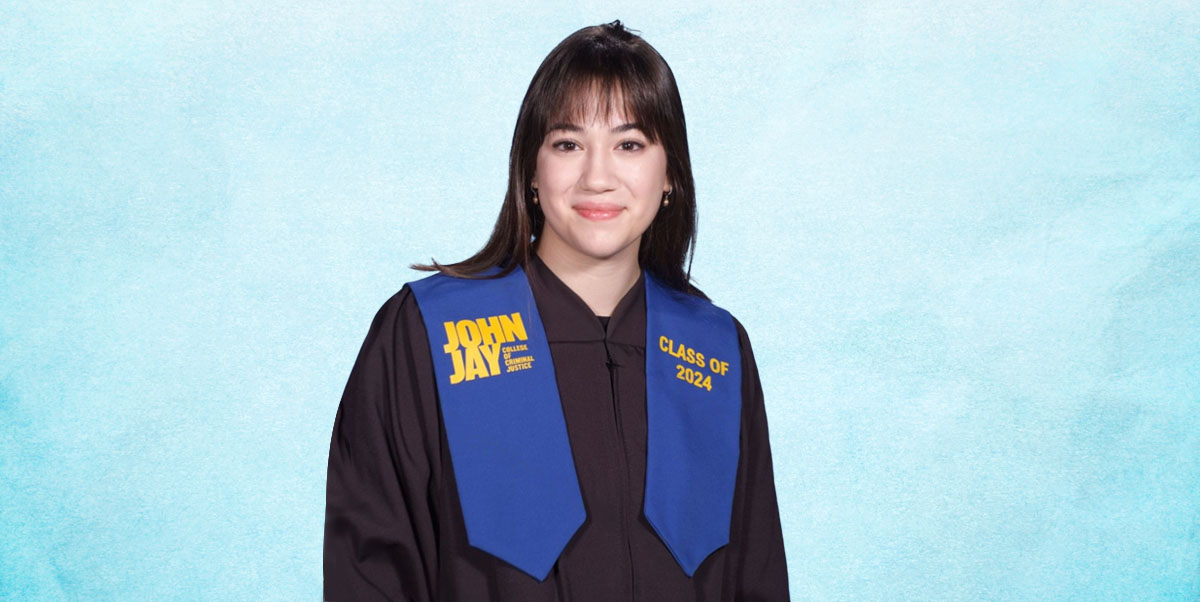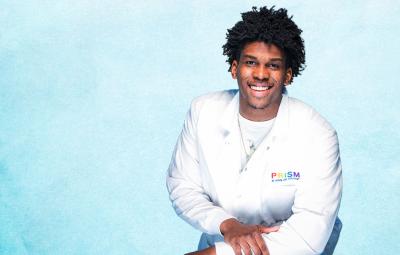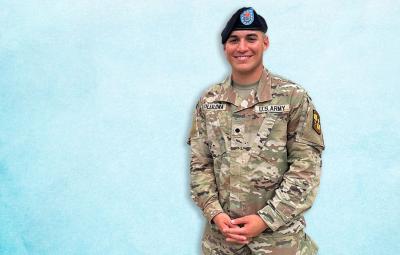
Degree: B.S. in Forensic Science
Concentration: Toxicology
Mentors: Marta Concheiro-Guisan, Ph.D., Edgardo Sanabria-Valentín, Ph.D.
Program: Program for Research Initiatives in Science & Math (PRISM), CUNY Inclusive Economy Initiative (CIE)
Hometown: Long Island, NY
Career Aspiration: Earn Ph.D. and Toxicology Researcher
“Because of John Jay, I’m a scientific researcher. It was here at the College where I honed my skills, learned to think outside the box, and fueled my passion for science,” says Rachel Calvagna ’24, who was accepted into New York University’s (NYU) master’s degree program in environmental toxicology. “Going to grad school wasn’t originally in my plans, but John Jay and PRISM changed all that. They helped me see what was possible. They taught me I could do and achieve anything.”
Why John Jay?
The forensic science program appealed to me. I come from a very blue-collar family. Many of my family members work in law enforcement. I didn’t think I had their law enforcement skills in my wheelhouse, so I thought the science aspect of the justice system was where I would be better suited. I was always into forensic science. When searching for colleges, John Jay was one of the few that specialized in forensic science, especially for crime.
How has the PRISM program enriched your John Jay experience?
I entered PRISM at a critical point in my academic career. My freshman year was completely remote due to the pandemic, and going from online to in-person science classes during my sophomore year was an entirely different ball game. The different modality of learning made me feel like I was back at square one. That changed when Dr. Edgardo Sanabria-Valentín came into the organic chemistry class to talk about the PRISM program. He shared how PRISM would help us hone our research skills and that we’d actually get to work in a lab, which was very appealing. The program also gave me a greater sense of community. Forming friendships with my PRISM peers, people I could rely on and study with, was transformative for my educational journey.
Were there any internships, research projects, or learning experiences that helped shape your career aspirations?
With PRISM, I gained a lot of hands-on learning experience through the 20 hours a week of lab work and research. Being in the lab made me feel so centered and organized. I learned how to think analytically, see the big picture, and then zero in on the issue. Last summer, I was a peer mentor in the College Now program, where I worked with rising juniors and seniors in high school who are interested in STEM. Teaching and helping them develop their own research projects felt like a full-circle moment for me.
You were named the 2024 Outstanding Undergraduate Researcher. What brought about this distinction?
My research with Dr. Marta Concheiro-Guisan was to look at certain biomarkers of stress in pregnant women. Specifically, we’re looking at hair—which is a really fun matrix because it grows at a fixed rate. So, if you look at a certain segment of hair, you could retroactively determine, over three trimesters, how stressed somebody is. We looked at real samples from Albert Einstein Hospital. The samples were from women from different socio-economic backgrounds, and it was up to us to develop a method to quantify the amount of cortisol, which is the biomarker for stress found in hair. The goal was to develop a method to test those stress levels so that we could better understand the role stress plays throughout the pregnancy and birthing process and hopefully help improve OB-GYN care.
How have your mentors helped you reach your future career goals?
Research can be scary, so having mentors who are really there for you is pivotal to student success. As a student, you need guidance and a mentor, and Dr. Concheiro-Guisan and Dr. Sanabria-Valentín provided me with encouragement and support in countless ways. Dr. Ed introduced me to PRISM, opening up a new world of research and learning for me, and Dr. Conchiero-Guisan taught me to be a researcher and pulled the curtain back on toxicology. She pushed me to keep an open mind, ask questions, and find new ways to improve experiments. When I came to John Jay, I planned to earn my bachelor’s degree and get a job, but they motivated me to think outside the box and pursue more. All my post-graduate plans are because of them.
What are your post-graduate plans?
I’ve committed to NYU for a master’s in environmental toxicology. They were incredible in offering me a full-ride scholarship as well as an $18,000 stipend, so I’ll be able to earn my master’s degree debt-free. I’m super excited about the work I’ll be doing there because it feels like a continuation of my time at John Jay. I love the research they’re doing and how it informs policy. I especially appreciate their work on the long-term effects of particulate matter exposure on firefighters after 9/11. Like John Jay, going to this program at NYU feels like a way to make a tangible difference in the world.



